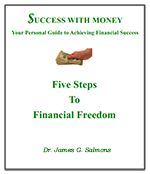Do you know how much it costs to buy a house? When most people think about buying a home they think primarily about the purchase price of the house with little consideration for interest payments on the loan they acquire with it or other expenses like the closing costs.
Interest, A Big Cost in a Home Purchase
Freddie Mac reports current average home loan rates (as I write) to be 6.67% for 30 year loans and 6.34% for 15 year loans. Sometimes the rate difference is much more, making shorter term loans even more preferable.
Take the average home today, about $200,000 in price. Interest payments on a 30 year loan at these current rates would require $1,286.58 payments per month with interest payments of $263,168.27 over the loan period. A 15 year payment plan would require $1,724.67 monthly with interest payments of $110,440.85 over the loan period.
You will see that the total cost of the house with a thirty year note is $463,168.27 while with the 15 year note it is $310,440.35. Observe that this is a difference of $152,727.92.
Please read those last two sentences over a couple of times and let the numbers sink in. We are not talking about small change here. And this is at a time when the two rates are relatively close!
Note:
The cited rates are a little more than current rates due to actions of the federal reserve system in the United States related to the economic crisis but the principles are the same and rates will almost certainly return to these or even higher ones in time. If a person does finance their home, which makes good sense in many situations, now is a good time for securing a low rate, but a quick payoff is still warranted.
Reduce the Interest Cost of Buying
Real estate salespeople naturally want to sell you the most expensive house you can qualify for, generating the most commission for themselves. Banks make more money from a larger loan than from a smaller one.
And, unfortunately, too often we want to buy the most expensive house we can, thinking about the short term benefit rather than the long term consequence. But often it is wise to follow a different plan. In fact there are many other options.
Clearly a shorter term note is better, but most often people say they can’t afford the higher payments. So what should a person do?
1. Obviously a person can just decide to live in a less expensive home and get the shorter term loan. Living a more frugal lifestyle, including a less extravagant home, makes sense for a lot of folks.
2. Another plan begins in a similar way, first buying a much less expensive home than you could afford but also with a much shorter term loan, then after buying it you make extra principal payments to make the payoff time even shorter. Later you can trade up.
3. Another plan, which I have used myself, is to partially build a house and add on to it later. In my case I added a large sun room, triple garage, and concrete driveway a few years after building the “first unit” of my home.
4 My parents followed a great plan. They saved up and bought a fixer upper for cash, made improvements, and sold it. Then they did it again, eventually enabling my mother to trade their lake home for a new house in town free and clear after my father’s death. No loan was ever involved, thus zero interest.
Limiting Other Costs in Buying a House
There are many other factors to consider when buying a house. For example, remember that costs are higher if you do not put down at least 20% of the loan up front. And, naturally, you want to make sure you have your credit rating high enough to qualify for a better than average loan rate.
Then there are also what are referred to as “closing costs.” You should know that these can vary greatly from one institution to another. It is as important to ask about these as it is to ask about interest rates. Shop and compare.
Not all offerings are the same. It is essential to get acquainted with loan facts and options before committing to whatever is offered by someone who will benefit financially by your purchase.
Your Mind Set About Home Buying
Perhaps most important is to approach any financing with the right mind set. If you talk to a lender as someone looking for help, leaving the impression that you are at their mercy, you are destined for trouble. If you talk to them as a potential customer who is shopping around for the best offer, it is a whole different story.
In any case, make sure you consider all the potential options for providing housing for yourself and your family. And if you purchase a house,don’t lose site of the fact that it is not the cost of buying a home, but the cost of the financing, that is your number one consideration. Only then will you be able to get the most for your money.










